At the beginning of this season, I was ecstatic. My beloved Wisconsin was going to be playing host to not just one but two major events, and one
of them was going to be a Pro Tour – next week’s Pro Tour Battle for Zendikar, being held in Milwaukee. As a near lifelong resident of Wisconsin (minus a
year in NYC, minus a few years in Germany), I have to say, I absolutely love this place.
I think it’s fair to say that in my mind, all roads lead to the heart of Wisconsin: Madison.

This is why I have a heavy heart about this weekend. It marks the last Grand Prix that Steve Port and Legion
Events are on the Grand Prix calendar. Steve Port doesn’t live in Madison any longer, but his influence is one of the big reasons that Madison,
Wisconsin is on the Magic map. If you don’t already know his name from his great events, he’s the guy that has been producing The Magic Cruise – generally considered , but he’s also
responsible for some of the innovations that we’ve come to grow used to.
It goes from the small thing to the larger picture. Back in 2005, for Grand Prix Minneapolis, Steve Port gave out the first official Grand Prix playmat. It
was a modest little playmat, but it was all a part of just making events be as good as they could be. Some of his other innovations are the kind of thing
that make you wish you’d see them at every Magic event:
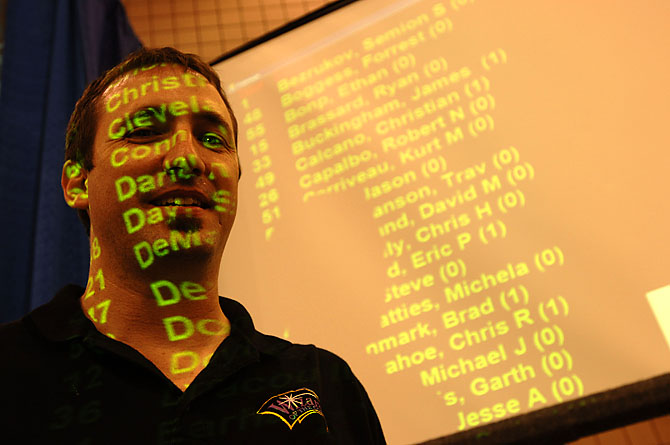
If you’ve ever been at his events with scrolling pairing, you know how much more efficiently they communicate to a room than the standard paper pairings
posting. It’s that element, the desire to make the tournament run quickly and efficiently, that made so many people look to his events as the gold
standard.
Steve didn’t invent the idea of trying to deliver the best, most efficient event to his users, but he so clearly made it the heart of his events that right
from the beginning, we all could tell something was different with his events. Back in the 90s, people not used to his events would marvel at how early his
larger PTQs would end; they were used to hours if not many hours more for the same size event. As he scaled up, that efficiency carried through.
I didn’t know Steve when he was running his first events. His very first Magic event was in 1994, and at that time, I was just some kid living off in La
Crosse, Wisconsin, playing cut-ante with a 180-card deck, thinking it was good. I’d soon move to Madison, and by the time he had his first PTQ, I’d had
enough of them under my belt (nine at that point), I could already see that it was something different.
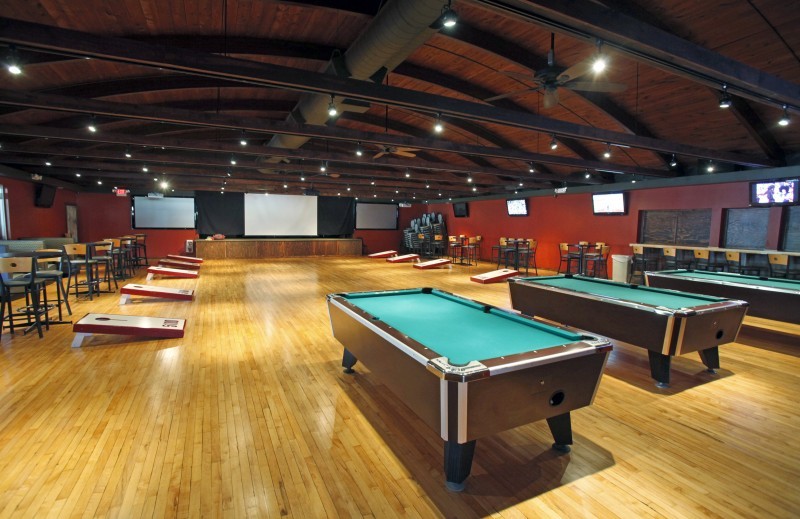
It was held at the Park Ponderosa, a ballroom/country line-dancing joint, outside the city. Unlike every PTQ I’d attended up until that point,
Steve didn’t just try to squeeze everyone into a space that couldn’t hold everyone who showed up. Right from the beginning, it started out spacious, it
started out grand.
A few months later, Steve held the first Wisconsin State Championships. It was won
by Milwaukee’s Rob Castro, playing Five-Color Green, and it was also held at the Park Ponderosa. Not only were we getting used to spacious events but we
were also getting used to prizes that were worth something. The Wisconsin State Championship was also tied to a great prize: free entry to all of Steve’s
events. Later, he would work a deal with other midwestern Tournament Organizers, and it would be free entry to all events by the major TOs.
This kind of choice cultivates something in a community. Every year the Wisconsin State Championship really mattered not only because the prize was cool
but also because everyone in the state actually seemed to care about it! This wasn’t the case most other places I was aware of; I’d talk to people and
they’d have a fairly ‘ho-hum’ response to the concept of a State Championship, while in Madison and all of Wisconsin, we were gung ho.
It wouldn’t be long before Steve would open a larger store in town, Misty Mountain Games, and then
the community in Madison would get even more tight knit. The most enthusiastic amongst us–me, Bob Maher, Mike Hron, and several people you might not know,
like Jim, Don, Darrell, and others–were congregating at restaurants to get in enough drafts. Now we had a home to play in at Misty Mountain Games. That
store was, to that point, a place with the largest play space of a store I’d been to yet. Going to PTQs or other events at his store was a joy. Plus, you
couldn’t beat the location (just follow that dotted line…)

With a home for our community, Madison really thrived. It was around this time that Madison’s most high profile current resident, Sam Black, arrived, but
more importantly, that core of players had coalesced. People would come and go; Maher, for example, would largely retire from the game, people like Justin
Cohen would arrive. But whatever the case might be, a community built up in the fertile space Steve had created, and today, Madison’s Magic community is so
strong that we had multiple people in the Top 8s of the largest Magic event in history, Grand Prix Las Vegas.
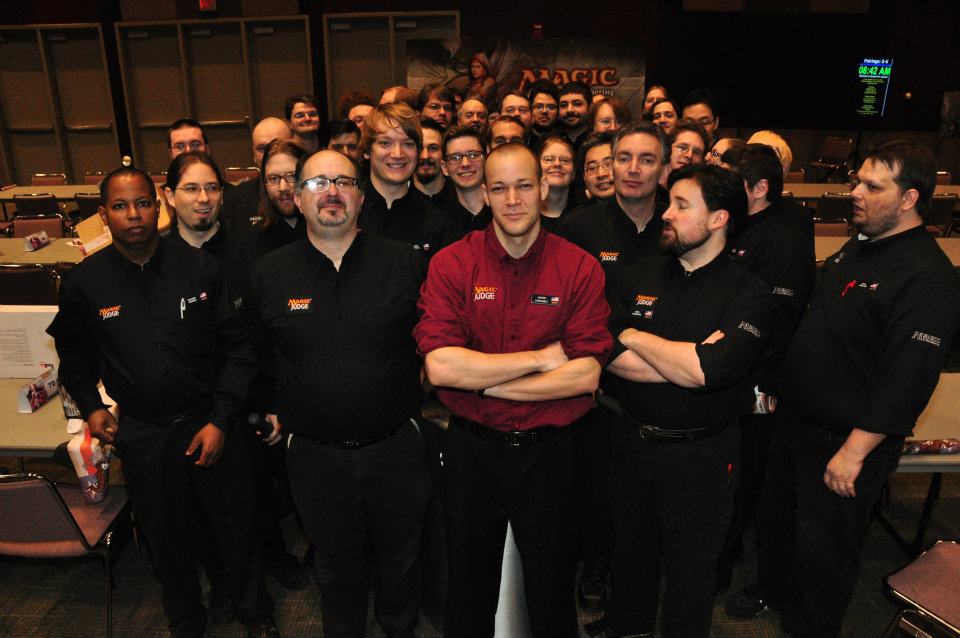
If you’re like me, you’ve gone to a lot of Magic events. Especially lately, events (especially large events) have gotten quite good. A huge part of this is
staff.
Cultivating a good staff is huge. If you’ve been to an Open Series weekend, you are probably used to the event running incredibly smoothly. This is, in
part, because the people that are running these events have done the work again and again, and they know what is going to happen. The people who are
strong, good workers get asked back to do the work again, and you know when you go to an Open Series weekend that things are going to be top notch because
of it.
These days, several of the top judges in the game are out of Madison. They are all Legion Events alum, and have long been a part of the process of
mentoring other judges. In the picture from Grand Prix Austin, above, front and center you can see Level 5 Judge Jason ‘Lems’ Lemahieu with Level 4 Chris
Richter on his right (our left). As the player community in Madison grew, so did the Judge community, and again, I have to say it is because of Steve.
And so, this event, Grand Prix Madison, may well be the last one we see run by Legion Events. It is possible that Steve and Legion will have something in
the future, but with nothing on the schedule for 2016, my heart mourns. Steve no longer lives in Madison; these days he is up in Minneapolis, raising two
kids with his awesome wife, Lindsey. He had such success with his store in Madison that he opened a second one up there, but he’s since sold both stores to
focus on Legion Events and Legion Supplies.
I know we won’t be done seeing Steve at events. Long ago, Wizards brought him in to run the side events of many of the major events, and he is also a part
of each of the Pro Tours, so we’ll be seeing him in Milwaukee and beyond as well. Legion Supplies, his Magic product line, is alive and
well. They include some of my favorite designs for deckboxes ever!
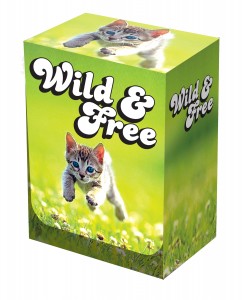
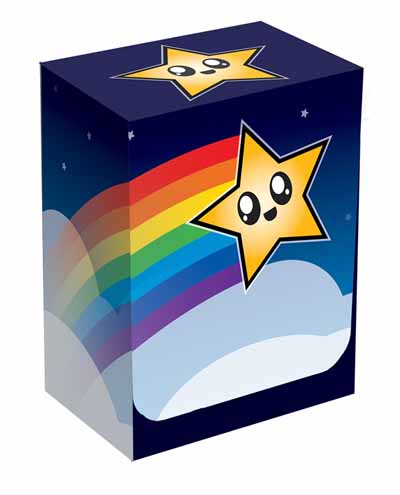
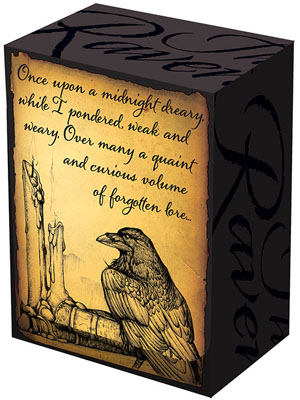
Grand Prix Madison is going to be bittersweet. I’m
incredibly excited to be at a major event in my hometown–our last Grand Prix was way back in 2006–though I’m
sad at the thought that this may be Steve Port’s last Grand Prix.
When I think about the lessons I take from Steve Port’s influence on Madison, and how I can imagine that it could be applied elsewhere, I think there are
quite a few things to take away. I know that when I moved to Madison, it wasn’t the thriving Magic community that it has become today, but it grew into it.
I think if you’re hoping to build up your own community, there are things you can do. Not every place in the world can do this, but if you have enough
people…
1 – Actively cultivate an environment of healthy competition.
Playing Magic is fun. Having fun is great. But if you’re hoping to build up the Spikes in your area, you need to have not only a sense of competition among
the people in an area but also a sense of camaraderie. At one point in Madison, there were something like three or four major factions of Magic based
around stores, and they rarely if ever mixed. It wasn’t until that was set aside and people started to see each other as potential collaborators that
Madison really started to grow into its own.
Healthy competition means seeking to build each other up. That kid you let into the draft as an eighth might not be as good as the rest of the group, but
if he or she has the drive, they could be an integral member someday. Getting together for games can either be done for fun, or it can be done as
“practice.” If you’ve ever done sports, you may know that going to practice can be incredibly fun, but usually that fun is done at the service of
improving, both for yourself and as a group.
2 – Find and cultivate a home base.
Having a place to congregate is important. It’s especially important that it be a public place in a store that gets a lot of traffic. If you’re hoping to
build community, you are always going to need new blood. The store you’re playing at should have the play space to support people showing up to play,
welcome drop in games, and have sufficient traffic that people will come in on the regular.
The best stores to try to do this at will already be working to cultivate a community themselves. They’ll have FNM, and they’ll have more than
FNM. They are the kind of store that wouldn’t ever try to rip someone off on a buy.
Buy products from them. Do your drafts there. Practice there. Set up mini-tournaments or mock tournaments there. Slowly help make the place be a known
place to go for anyone that is serious about Magic in your area. If the store owner is any good, they’ll welcome this interest and work with you and your
group in making small accommodations that make it an even better place to practice.
3 – Take Magic community-building seriously.
The best ways to forge a community all involve coming together with people. Communities can be built up, and they can fall apart. Some of the easy ways
that things fall apart involve simple neglect or active disrespect.
It might not be kindergarten anymore, but there is a lot to be said for being nice to people in your community. If someone did poorly, don’t make fun of
them for it; if you’re feeling generous, see if they are interested in input about getting better, and if you’re not, just keep quiet. If someone says
you’ve made a mistake, be willing to listen and have a discussion about it, not a yelling fest.
I’ve seen Magic communities fall apart because there are poisonous elements in them. These are the people that are always tearing other people down, making
people feel bad, and generally making the space be a space that isn’t just unwelcoming but is downright negative. Not everyone has it in them to do what it
takes to be a positive part of a community, but you can do what you can to be one.
4 – Make sure to go to events that mean something, and go together.
It doesn’t matter if these events are the upcoming Open Series weekend in your area, a Grand Prix many hours away, a PPTQ in the store you hang out in or
across town, or something else. Go to events. Prepare together. Travel together when possible.
If there aren’t events happening, talk to your store owner about running one. It doesn’t take much to run a small event, and it doesn’t necessarily have to
be sanctioned. What you want to have, though, are competitions that are on the horizon that you are all working towards together. Building camaraderie is a
good thing, especially when the stakes are meaningful. Eventually, you might find yourself working with members of your group prepping for some truly big
events, like a Pro Tour. Getting in the habit of preparation and practice is a great part of building a community up.
—
I don’t know if Steve Port knew what he was doing when he put together a lot of the pieces that I’m talking about. I don’t think it matters. The fact is,
the space he created in his store, the environment he created with his events, and the luck that we had a groundswell of people to build a community all
came together in what is today’s Madison Magic community.
Steve’s reach goes far beyond this city. I’ve long thought that Madison is simply the best Magic community in the world. If you ask me, Steve Port is one
of the most important reasons why.
Thank you, Steve. See you at the Grand Prix this
weekend.
